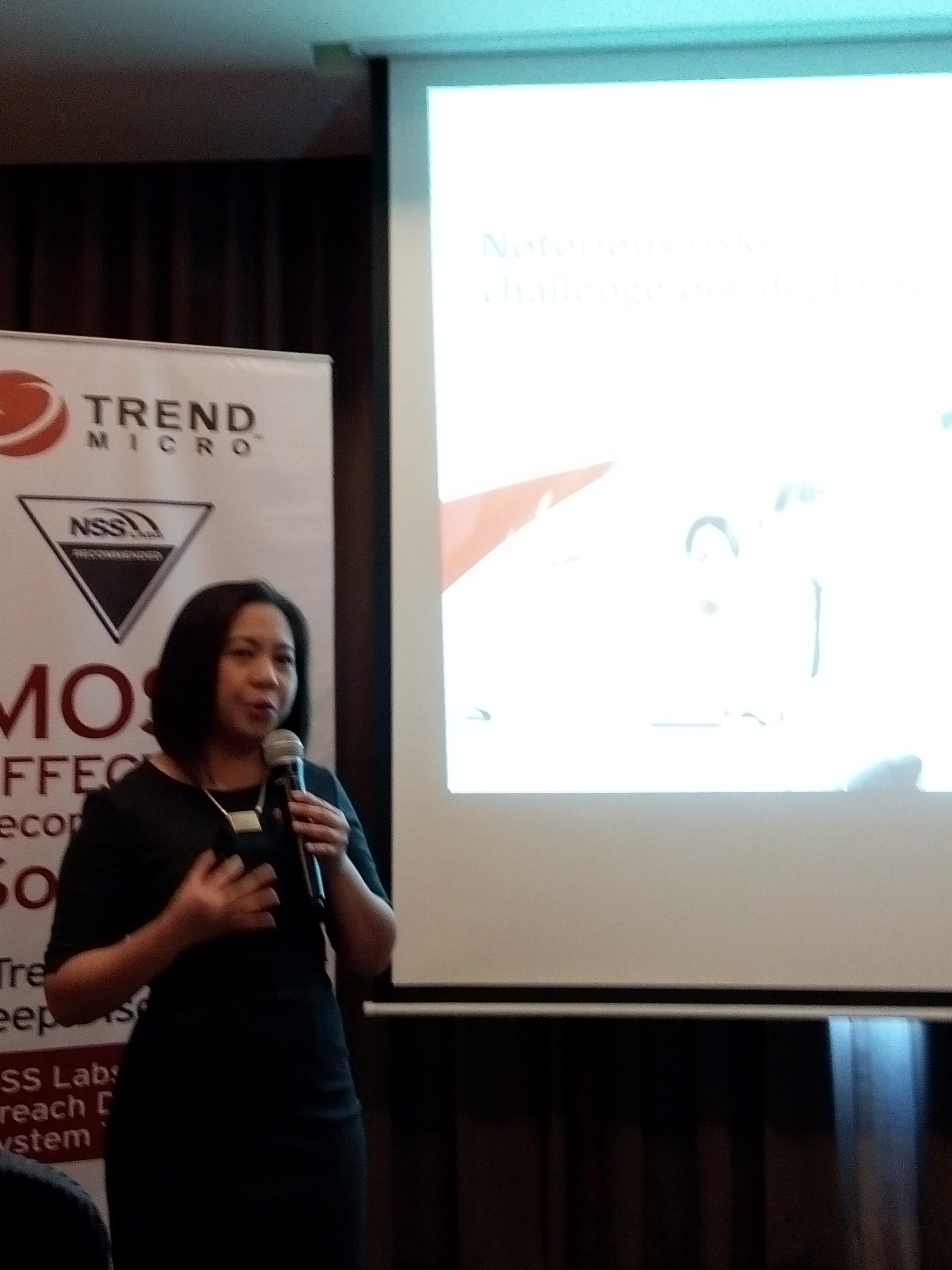The incidence of cyber attacks in the Philippines is likely to increase significantly in the remaining months of the year as cyber threats have increased at an alarming rate of 48% in the second quarter of 2016 compared with the previous quarter, warns Trend Micro.
The rising online attack in the Philippines is said to be consistent with the 18% growth in the Asia-Pacific region.
Myla Pilao, Director of Core Technology Marketing at Trend Micro, says the growth in cyber attacks in the last six months was driven by three factors: poor device control, which remains to be the successful method of attacks; social engineering, considered as the second most favored attack in the Philippines; and insider information.
Pilao pointed out that the most prominent attack that hit the Philippines in the second quarter was the data-stealing malware or breaches which accounted for 41% of Philippine infections. This attack, which arises from the use of old or legacy systems, gained prominence as it victimized more local industries.
“Local businesses are also still susceptible to old-school threats like file-infecting viruses and worms that spread through removable drives,” Pilao notes.
Apart from information-stealing threats, Trend Micro said that organizations worldwide were experiencing a rise in business email compromise (BEC) and targeted attacks. BECs are sophisticated scams carried out through business emails, while targeted cyber attacks are aimed specifically at a company, individual or software.
The security firm revealed that in the Philippines, the most favored industries of cyber criminals are banking and financial services industry (FSI), followed by information and communications technology, manufacturing, and transportation.
“Malware infections affect all types of industry regardless of size, and are capable of gathering user names and passwords, such as online banking and File Transfer Protocol (FTP) credentials,” said Pilao.
It was also revealed that the impact of not being secured to organizations is having an average of 120-million data or records that are being compromised.
In this regard, Pilao warned users to prevent ransomware attacks. “Backup and maintenance are disciplines that have to be executed,” she said.
Meanwhile, the rapidly growing cyber security risks has prompted Trend Micro to host CLOUDSEC 2016, the world’s leading Internet security conference, in the Philippines for the first time on August 16, 2016 at the Shangri-La at the Fort in Taguig City.
First held in 2011, CLOUDSEC gathers together industry leaders, government, NGOs, professional associations, technology vendors, and Internet security professionals against threats and attacks to cyber security. CLOUDSEC Philippines will be the third stop for the conference as it moves through China, India, Singapore, Hong Kong, Indonesia, Australia, United Kingdom, and Korea this year.
With “TAKE CONTROL” as its theme, CLOUDSEC 2016 has Trend Micro CTO Raimund Genes as its keynote speaker, who will examine organizational challenges of information security and risk management. Other speakers include Cognitio Corporation founding partner and former Central Intelligence Agency CTO Bob Flores who will discuss how top management can prepare against cyber security risks; Manuel Joey Regala, President of the Information Security Officers Group (ISOG), an organization comprising of security leaders of different financial institutions in the Philippines, will share insights on the state of cyber security in the banking industry
Critical topics such as virtualization of security innovations, forensics readiness, the enterprise cloud and its security implications, and data center management will also be discussed.
“It is very timely that we bring this awareness to the growing IT industry in the Philippines as business growth is accompanied by growth of security risks,” said Ian Felipe, Trend Micro Philippines Country Director.
Attendees are encouraged to register early as there are limited seats available. For registration details, please visit https://www.cloudsec.com/event/cloudsec-philippines -2016/.

















































































































